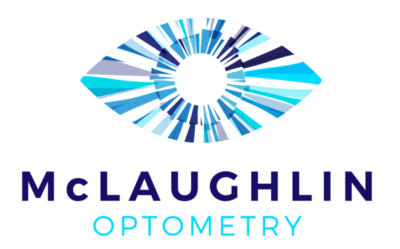Q: I wear contact lenses, but now I’m having trouble seeing clearly to read things up close. What can I do?
A: There are several options but first, it’s important to get a routine eye exam to make sure that your prescription is up-to-date. If it turns out that you need corrective lenses for near vision and distance vision, there are several choices to allow a patient to see at all distances: monovision contacts, multifocal contacts, or distance only contacts with reading glasses over the lenses. Monovision works by correcting one eye for distance and the other for near. With this modality, the two eyes do not work together as a team. It will require some adaptation. Multifocals work by correcting both eyes for distance and near. With this option, getting clear vision at one distance can blur the vision at another distance; the goal is to be spectacle-free with acceptable vision 90% of the time. Distance-only contacts with reading glasses will provide the clearest vision at all distances, but requires the use of glasses for anything up close. The option that is right for you will depend on multiple factors and can be discussed with your optometrist.
Q: What is snow blindness?
A: Snow blindness is a form of photokeratitis, meaning a burn of the cornea caused by UV light exposure. The UV light is reflected off of the snow; and without sunglasses or other eye protection, it can lead to a painful injury. Photokeratitis is more common at higher altitudes due to the thinner atmosphere. A similar injury can result from welders, water reflections or tanning beds. Don’t forget your sunglasses on your powder days!
Q: How do I know if I have Dry Eye?
A: Dry eye can cause quite a few symptoms, anything from the eyes actually feeling dry to the eyes watering often, or having a burning, itchy, or irritated feeling. One of the most common symptoms is the eyes feeling gritty or like something is in your eye. Most people will often experience blurred vision since the tears, which comprise the outermost surface of the eye, are unstable.
Q: My eye is suddenly red and irritated/painful, what should I do?
A: Whenever you get a red eye, it is very important to make an emergency eye appointment immediately with our eye doctor to see what the cause is. Some red eyes will go away with rest, but some are vision threatening and could cause blindness within 24 hours (ie. If the cause was a microorganism from contact lens wear). If you wear contact lenses, remove them immediately and do not wear until the redness subsides. Our doctor uses a high magnification slit lamp to examine your eyes to determine the exact cause of the problem and will treat accordingly. A family doctor usually does not have the necessary equipment and will treat based on your symptoms only. If your eyes need antibiotic eye drops, our eye doctor can prescribe the proper ones for your condition.
Q: Why is my child having trouble reading and concentrating on schoolwork?
A: Your child may have an underlying refractive issue, such as farsightedness, nearsightedness or an astigmatism that maybe be causing blurred vision, making it hard for your child to concentrate and focus. There may also binocularity issues, which is how well the two eyes work together, or focusing issues that can affect a child's schoolwork. When working with your child, we will evaluate the visual system including binocular and accommodative systems to determine if his/her vision may be interfering with academic success.
